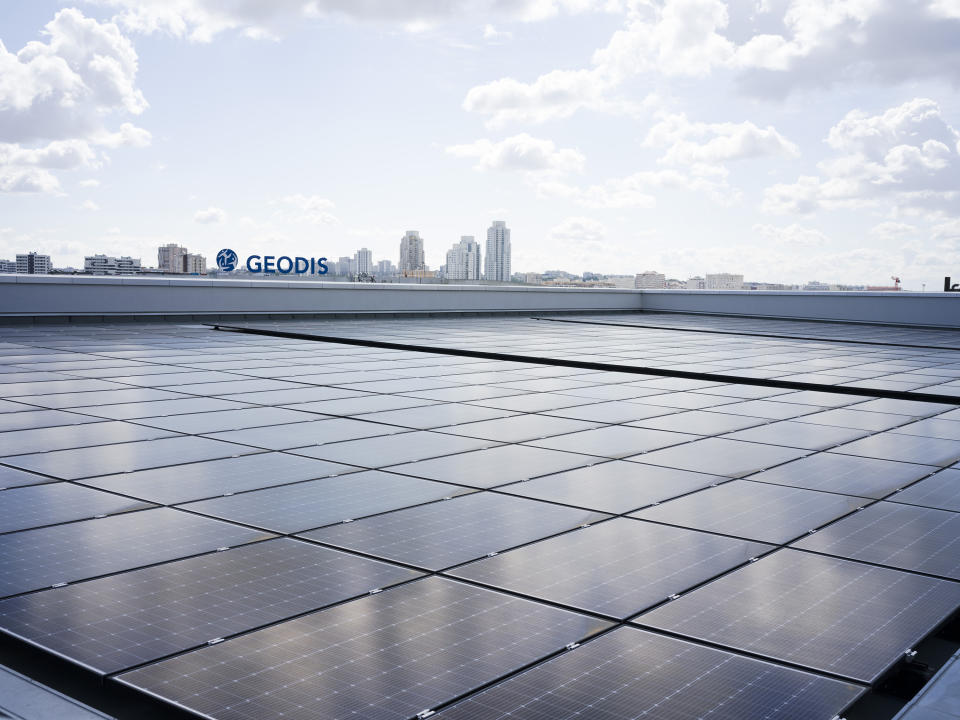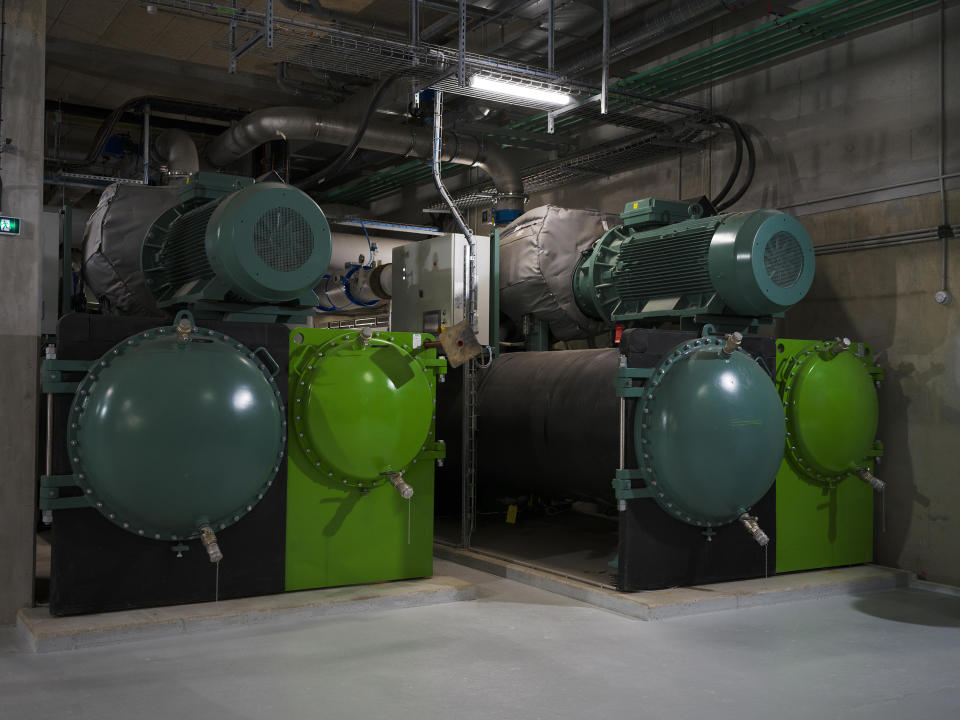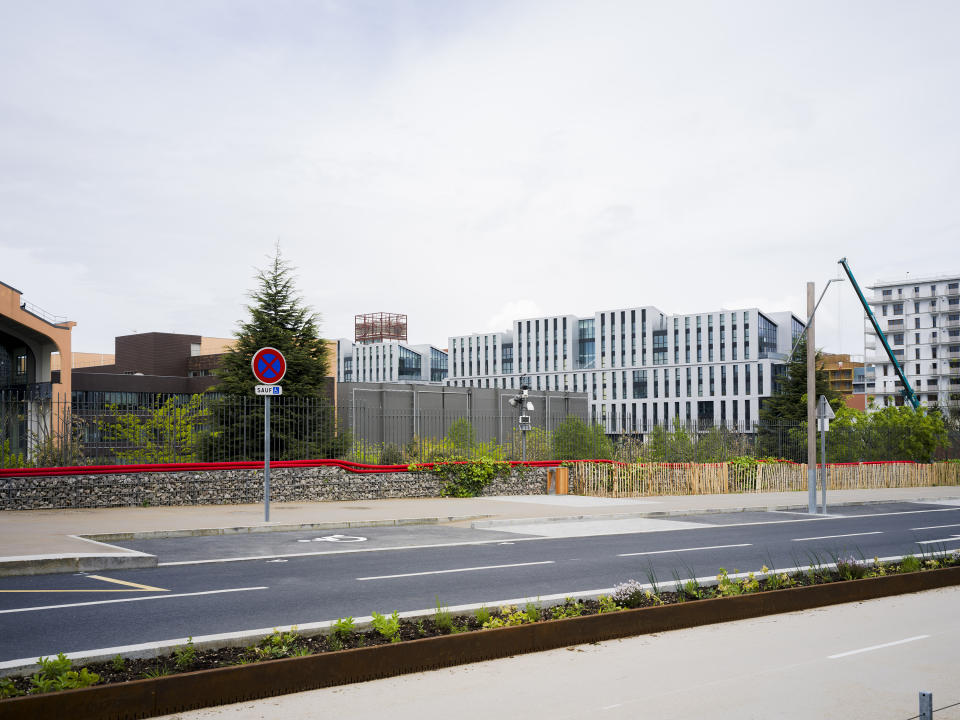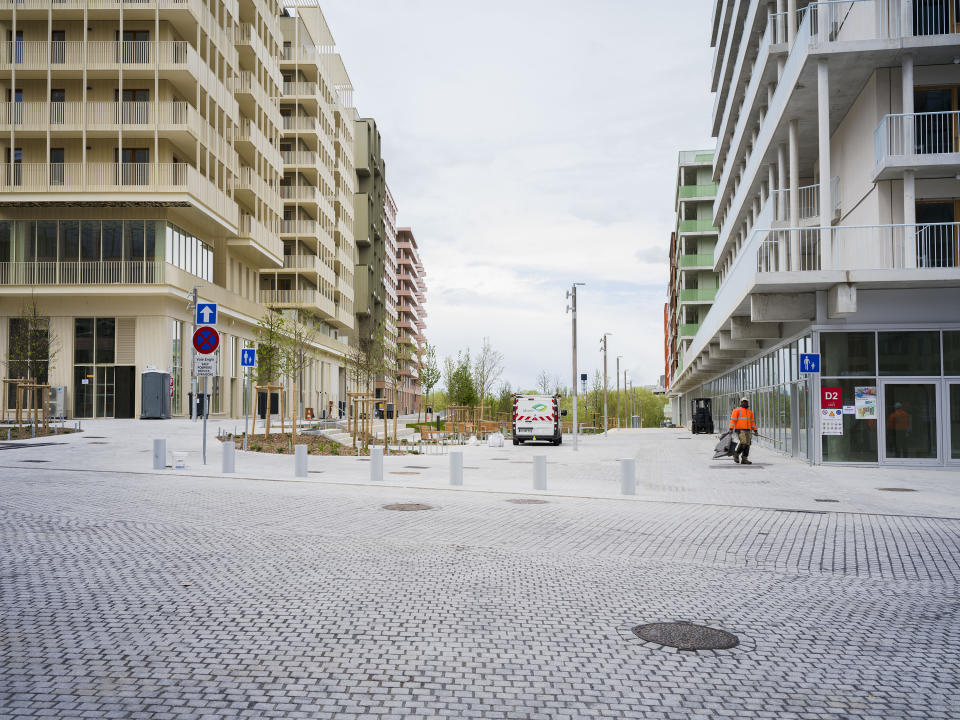Paris wanted an AC-free Olympics. Visiting nations had other plans.
PARIS - For all the steps Paris organizers have taken to put on the greenest Olympics ever, their boldest measure - the one they’ve touted again and again - pertains to the dorms in the Athletes’ Village. The rooms don’t have air-conditioning. Because of other cooling measures, organizers have assured, the athletes won’t need it.
But in a farcical turn, when the Games start next month, an Olympic Village designed to showcase sustainability will be more of an energy hog than organizers had hoped.
That’s because portable air-conditioning units will be everywhere. Wheeled in. Shipped in. Ordered by visiting countries that want their athletes to sleep well and perform at the highest level - even if it means a larger carbon footprint.
Worried about what potentially could be the world’s hottest year on record, wealthier nations have effectively undercut Paris’s marquee sustainability measure, signaling that, yes, they care about environmental aims - but not if it risks the comfort of their athletes. Some of those athletes are accustomed to temperatures cooler than what the dorms might have provided and raised concerns to their national Olympic committees.
“It’s a high-performance environment,” said Strath Gordon, the chief of public affairs for the Olympic committee of Australia, one of the countries opting for the ACs.
To capture the scale of planned portable air-conditioning use at the games, The Washington Post sent inquiries to 20 of the largest competing nations. Among the eight that responded, all - including the United States - said they were planning to use portable ACs in some or all of their athletes’ rooms. Others with air-conditioning plans include Great Britain, Canada, Italy, and - to a limited degree - Germany, which says ACs will be used for participants in just a handful of sports. If Japan, which did not respond to The Post’s inquiry, goes through with its own air-conditioning plans - announced at a news conference last December - then every Group of Seven country aside from the host will be using the units.
Those countries - plus Greece, Denmark and Australia, which also responded to The Post - accounted for more than 3,000 athletes at the previous Olympics, in Tokyo, more than a quarter of the total.
The wild card is China, which did not respond to the inquiry. It has one of the largest delegations - and it has an exceptionally fast growth rate of domestic AC usage.
“We will bring them. And we will take them back to Greece,” said Alexandra Palli, president of the Greek Olympic committee for environmental sustainability, who said her country was responding to the wishes of its athletes. “They need support. Because what they do is very difficult anyway.”
Many other countries plan to obtain the ACs in France.
The bid to forgo air-conditioning was just a tiny part of the overall Paris plan to reduce the footprint of a massive event. But it is highly symbolic, as it has forced participating countries to consider whether they want to participate in a sustainability experiment - abandoning conventional, energy-intensive privileges in the name of green goals. The collective decision of some of the largest countries also raises questions about equality: Portable air-conditioning represents a cost that some delegations from poorer countries might not be able to afford, meaning athletes in the same Olympic Village might be sleeping at different temperatures.
“We don’t have deep pockets,” said Donald Rukare, a lawyer who is president of the Uganda Olympic Committee. Rukare mentioned a sweltering international sports competition in Turkey a few years ago, where athletes stayed in rooms without air-conditioning. Some federations shipped in portable units; Uganda did not. “Because we didn’t have the money,” he said.
Paris organizers had realized even a year ago that air-conditioning was a touchy subject. So officials included portable air-conditioning units on what is called a “rate card” - a menu of add-ons and accessories that visiting countries could purchase to spruce up their dorms and offices. But that offer coincided with a campaign to convince visitors that the cooling methods already in place, most notably a geothermal system of in-floor cooling pipes, would work sufficiently. Officials emphasized that rooms would be at least 6 degrees Celsius (11 degrees Fahrenheit) cooler than outside temperatures. They described running simulations of heat waves. The director of the Olympic and Paralympic Villages stressed that athletes “will be able to rest correctly.”
Even with the influx of portable ACs, Georgina Grenon, the Paris 2024 director of environmental excellence, said Paris’s concept for the Athletes’ Village will still have decades of payoff. That’s because, after the Games, the neighborhood of newly constructed buildings will transition into apartments for some 6,000 people. For a world that needs to cut its carbon footprint, people don’t need to live at 65 degrees Fahrenheit in summertime, Grenon said, with ACs on full blast.
“We thought about the lifetime of the buildings” in conceiving the model, she said.
And as for the decisions of the visiting countries?
“It’s a pity,” she said.
- - -
Why AC has never been chic in Paris
The notion of riding out a summer without AC is quintessentially Parisian.
Only a minority of French homes have the units. And Paris has also been trying to place itself at the forefront of the global climate transition, aiming to become by 2030 what some articles describe as Europe’s greenest city. That means adding bike lanes, expanding urban green spaces - and, yes, trying to find smarter ways to beat the heat.
To that end, for the Olympic Village, Paris devised multiple strategies for keeping living spaces reasonably cool while also minimizing energy usage. Many of those strategies were simply matters of design. On a media tour this week, officials pointed out the white walkways that don’t trap the heat, the abundance of trees and grass, the airy passageways between buildings designed to catch the cool air of the Seine River.
And then they guided the press into a sample dorm room, where beds were made of cardboard, mattresses made of recycled fish net - and where there were no air-conditioning vents to be seen.
(For the record, the rooms did have floor fans.)
In those rooms, the heart of the cooling system is tucked under the floorboards, with a labyrinth of pipes that run cooling water through the floors. The system, Grenon said during the tour, is reversible, meaning hot water could be channeled through in the winter. The water, through a series of exchanges, links back to a source 230 feet underground.
The system is more efficient than classic air conditioning, as it relies on the relatively stable temperature below the surface. The system used in the dorms also differs from classic AC, officials say, because there is no guaranteed or set temperature. The athletes’ rooms have thermostats, but their utility is limited: they control the speed at which the water circulates, amounting to a difference of 3.6 degrees Fahrenheit warmer or cooler, said Laurent Michaud, the director of the Olympic and Paralympic Village.
Paris is using a different system, more comparable to a classic air-conditioning system, involving vented air, through about one-third of the Olympic Village - areas that are designated as office spaces.
But simply running water through the floorboards tends to have a limitation. If the water in the floor pipes is too cool, there is a risk of condensation, like with a can of soda on a hot day. Solideo, the entity involved with handling the infrastructure for the Games, said the water moving through the floor will be at 64 Fahrenheit.
Paris officials have been asked repeatedly about what will happen in the event of a heat wave. In Europe, the 10 warmest years on record have all come since 2007. Five years ago, Paris hit a record high temperature of 109 on July 25. On the date of July 26 - when the Games open - recent highs have ranged between a comfortable 75 and a brutal 102.
The officials have said that with the right habits, such as closing shades during the day, temperatures inside the dorms won’t exceed 79 Fahrenheit.
Nicolas Ziesel, an architect whose firm helped design roughly one-fifth of the Village’s buildings, said he used a similar cooling system for an apartment building in Strasbourg, completed five years ago, and never heard complaints. But he acknowledged that any projections about indoor temperature are “super hypothetical,” given global climate change.
“Who can be 100 percent sure we won’t have one day that will go to 50 [Celsius],” or 122 Fahrenheit, asked Ziesel, the co-founder of the KOZ architecture firm. “We’re in conditions beyond anything known.”
- - -
Why competitors care about cool
For an elite athlete, there are good reasons to want assurances that the temperature will be tolerable. Some athletes, because of their event times, will prefer to sleep in the daytime. As Mitsugi Ogata, the Japanese Olympic Committee secretary general, noted in his news conference, some Paralympians - whose competitions will follow the Olympics - may have “difficulty regulating their body temperature.”
And then there’s the matter what athletes are accustomed to.
“Temperature control is a big thing,” said Kat Holmes, a fencer from Washington, D.C. “I like it really cold when I sleep.”
More precisely, she likes the temperature set at 69 degrees.
For Holmes, 30, Paris will mark her third Olympics. Counting those events - not to mention the World Cups, the national tournaments, the Pan American games - she’s seen almost every kind of housing situation, and she said she considers herself “pretty good at adapting.” She regularly competes in hot places, such as Cuba, and cold places, such as Europe in winter, where lodging facilities had the heat on full-blast and residents couldn’t turn it off.
“Sometimes I would just open the window and let the blizzard enter,” she said.
But fencers in particular can benefit from temperature-controlled climates, she said. The equipment, which needs to air out, gets “really gross” if left sitting in humid conditions. Even a fencer’s blade can rust.
Holmes said she’s certain Paris will be her last Olympics. She’s training to become a doctor. She’ll soon start rotations as part of medical school. She said she would “survive” without AC, but since this is the capstone of a long career, but she’d like to excel. And she’d like to sleep.
“I am very pro-environment,” she said. “But the point of this is to bring together the world’s best athletes to perform the best they can.”
- - -
Julia Mio Inuma, in Tokyo, and Zach Petit, in Paris, contributed to this report.
Related Content
One graduate’s quiet protest: Bringing a banned book to commencement
The real dolphin tale: They’re smart, sometimes vicious and highly sexed









